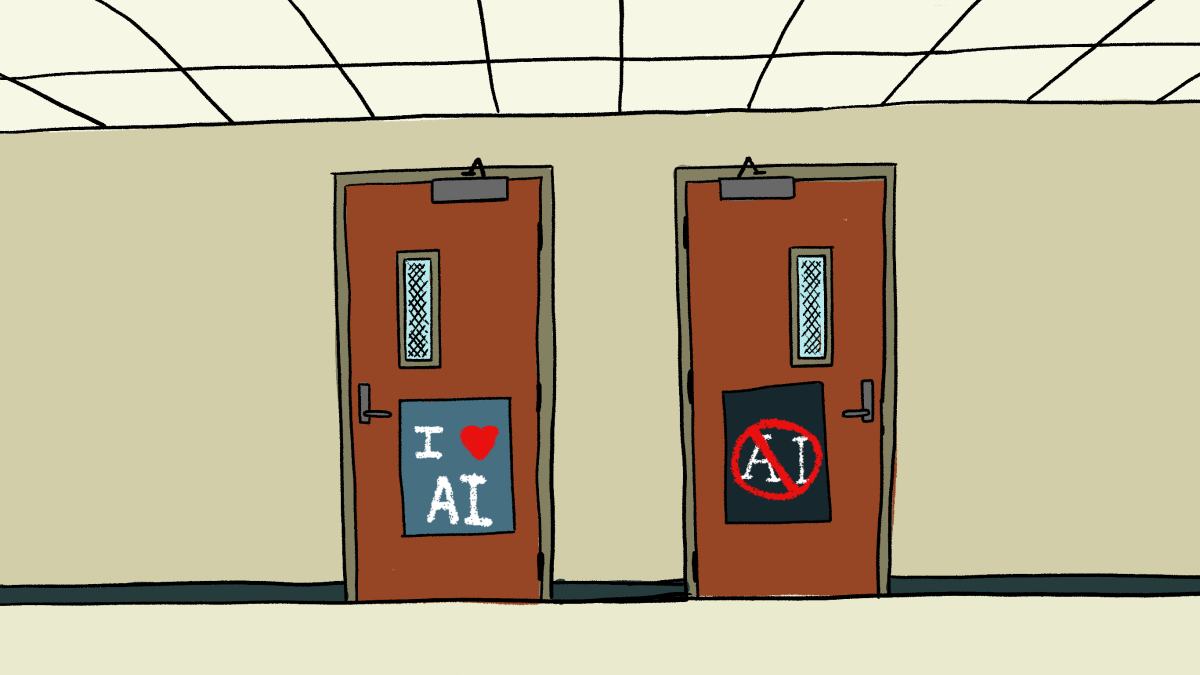Nearly half of LSU’s faculty don’t see a place for generative AI in the classroom, a survey conducted on behalf of the Faculty Senate, Information Technology Services and the Office of Academic Affairs shows.
Just 27% of faculty members polled said they felt compelled to incorporate AI in the classroom. About 25% said they felt unsure, leaving the remaining 48% against it.
A total of 508 faculty members participated in this part of the survey. There were roughly 1,650 faculty members employed by the university in 2023.
“It’s new for everyone,” said Roy Haggerty, executive vice president and university provost. “I think it’s natural for people to be hesitant.”
The hesitancy reflects broader, global concerns about AI and its impact on jobs, privacy and ethics, he said reflecting on the survey’s results. It shouldn’t really come as a surprise that it’ll take some time for LSU’s faculty and the world to adjust to the rapidly evolving technology.
Lots of faculty who took the survey said that they felt a need for university-wide ethics courses and for administration to hammer out concrete usage policies, but these, Haggerty said, ultimately fall to the faculty to create, as they regulate the university’s wider curriculum.
Haggerty’s view is such that it makes more sense to mold policies with AI in mind but in such a way that doesn’t specifically target the technology.
“I don’t think that we should have one overarching policy for AI, for the same reason that AI is going to affect everything,” Haggerty said. “I think what we will need is to take the existing policies and adapt them for AI.”
He said instead of blanket rules for AI, it makes sense to update existing policies, like those on academic integrity, to account for new technologies. The goal being, he said, to provide flexibility that allows individual faculty members freedom in deciding how best to incorporate AI into their classes.
He predicts AI’s future in the classroom will vary major by major, as it varies in different sectors of the economy.
For some, like for coding and more broadly the computer science field, it might become integral to generating code. For others, perhaps writing and broadly the English language arts field, it might only be tangentially useful as something of an advanced word processor. It might be discouraged altogether, he said.
With the policymaking ability up to faculty, Haggerty said, it allows for them to make decisions based on their understanding of and expertise in the technology.
Haggerty was a pioneer in creating the first class at LSU to address and incorporate AI in a business-development setting. This is his third year teaching the class alongside two other specialized instructors. It gives students hands-on experience with real-world problems to solve.
Haggerty compares the democratization of AI to the introduction of the internet. There was hesitancy then too, but now it’s integral to the way academics – and the world – works.
He’s optimistic about the technology’s advancement and its further refinement. Perhaps in the very near future, he said as an example, it can be used to correct for human bias when it comes to job applications.
“Hesitancy around AI won’t necessarily hinder progress; it’s more of a signal that we need to continue conversations about how to best use it,” Haggerty said.
Faculty still wary of AI in classrooms, data shows. Sweeping policies from LSU admin unlikely.
By John Buzbee
October 14, 2024
AI Classroom Graphic
More to Discover







